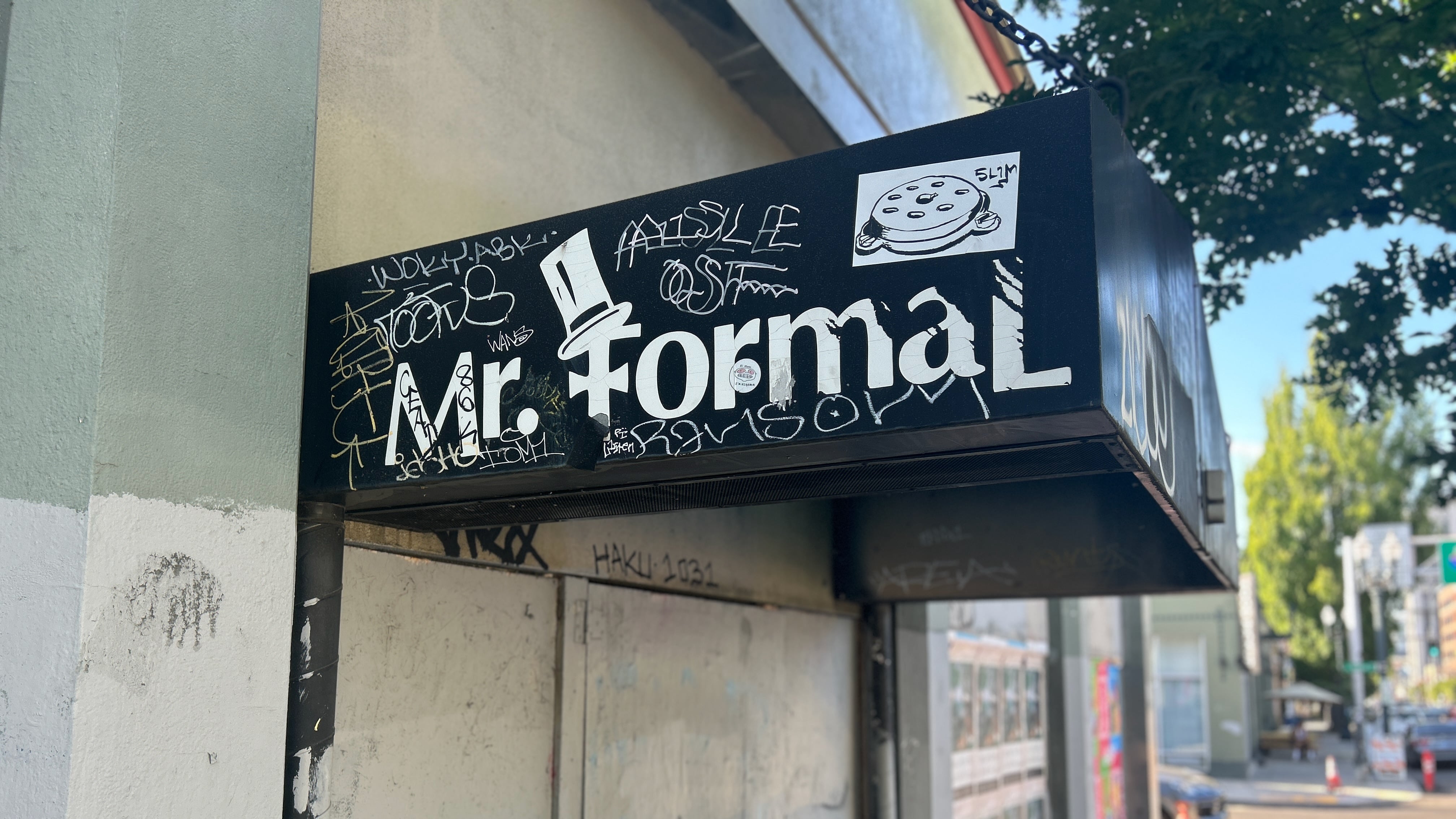- ADDRESS: 1205 SE Grand Ave.
- YEAR BUILT: 1927
- SQUARE FOOTAGE: 9,000
- MARKET VALUE: $2.3 million
- OWNER: Grand MLK LLC
- HOW LONG IT’S BEEN EMPTY: Since 2018
- WHY IT’S EMPTY: Tuxedo blues.
People just don’t celebrate like they used to. At least so says Ed Honeycutt, who spent a half century building up Mr. Formal from a tiny Beaverton storefront to one of the largest tuxedo rental chains in the country.
At its peak, the Mr. Formal empire encompassed 50 stores across five Western states. “We would do 8,000 rentals in a weekend,” he says. “Now it’s 500.”
“There’s nowhere near the demand there used to be,” he says. “Right after 9/11, things started to turn.”
Amid the subsequent economic malaise, he says, business stopped throwing cocktail parties. High schools instituted themed proms. The black-tie wedding gave way to backyard affairs.
He retired five years ago, handing over the reins to a longtime employee. The chain still has four stores left, all in Oregon and Southwest Washington.
But with such a reduced footprint, Mr. Formal no longer needed its 9,000-square-foot warehouse on Southeast Grand Avenue, which once housed not only many thousands of suits but also the chain’s dry cleaning equipment. (Before Honeycutt took it over, historical records say, the building once held a garage, a grocery store, and various industrial manufacturers.)
Honeycutt sold it to a family from Berkeley, Calif. The warehouse lies in what’s known as an “opportunity zone,” which gives tax advantages to investors. The family had just sold a big apartment complex in Chicago, Honeycutt says, and the favorable tax environment made the warehouse a perfect place to park the proceeds. (The family did not respond to WW’s calls.)
The investment doesn’t appear to have panned out. The new owners filed for permits to renovate the building to “create retail spaces, restaurant, offices, bike storage & trash room”—but never paid the fees and eventually sold the building in 2021 at a $2 million loss. The buyer: a limited liability company controlled by a Vancouver dentist. (He also did not respond to WW’s calls.)
The new owner restarted the permitting process last year, right around the time Mayor Ted Wheeler announced a 90-day “reset” to address complaints from businesses that widespread street camping had made the area dirty and unsafe.
Frequent sweeps of campers have left the neighborhood somewhat tidier. But there’s no evidence of a remodel at the warehouse.
The building remains boarded up and serves as a bulletin board for anarchist flyers, which urge passersby to stop paying rent, debts and taxes. “They can’t evict us all,” one says.

